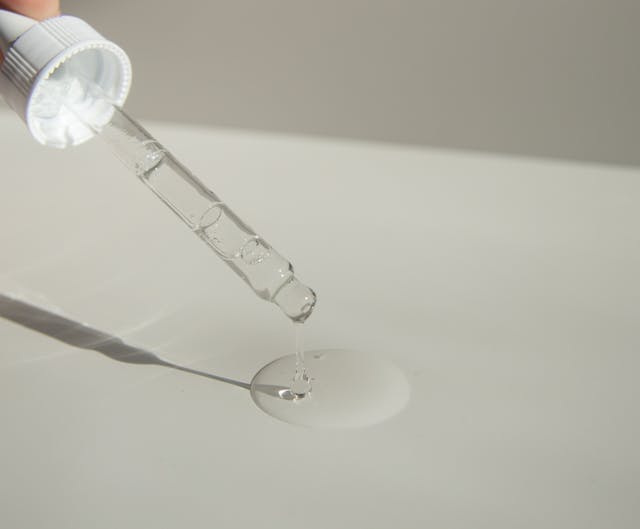Call Today to Schedule an Appointment: 212-319-5282
The Role of Immunotherapy in Allergy Treatment
What is the role of immunotherapy in allergy treatment? Immunotherapy is a transformative treatment for individuals suffering from allergies, particularly those who do not find relief with conventional medications. This treatment involves gradually exposing patients to increasing doses of allergens, aiming to build their tolerance over time.

The Role of Immunotherapy in Allergy Treatment
1. What is Immunotherapy?
Immunotherapy, also known as allergy shots or sublingual immunotherapy, is a long-term treatment designed to decrease sensitivity to allergens. By repeatedly exposing the body to small, controlled amounts of the allergen, the immune system is trained to tolerate it without triggering a severe allergic reaction.
2. Allergy Shots (Subcutaneous Immunotherapy)
Allergy shots are a well-established method of immunotherapy. Patients receive injections containing small amounts of the allergen, initially on a weekly basis. Over time, the dosage is gradually increased, and the frequency of the shots decreases. This treatment is particularly effective for common allergens such as pollen, dust mites, mold, and pet dander. The maintenance phase, where injections are given monthly, can last for several years, leading to long-term relief even after the treatment ends.
3. Sublingual Immunotherapy
Sublingual immunotherapy is an alternative to allergy shots, involving the placement of allergen tablets or drops under the tongue. This method is primarily used for treating allergies to grass, ragweed, and dust mites. It is a convenient option as it can be administered at home, making it easier for patients to maintain consistent treatment. Sublingual immunotherapy is a viable choice for individuals who are averse to needles or prefer a more flexible treatment schedule.
4. Benefits of Immunotherapy
Immunotherapy offers numerous benefits:
- Long-Term Relief: One of the most significant advantages is that it can provide lasting relief from allergy symptoms, even after the treatment is discontinued.
- Symptom Reduction: Patients experience a marked reduction in symptoms such as sneezing, itching, and congestion. This improvement can significantly enhance quality of life, particularly during allergy seasons.
- Medication Dependence: With successful immunotherapy, there is often a reduced need for daily allergy medications, which can save costs and reduce side effects associated with long-term medication use.
- Preventive Benefits: In children, immunotherapy has the potential to prevent the development of new allergies and can also reduce the risk of developing asthma.
5. How Immunotherapy Works
The mechanism behind immunotherapy involves desensitizing the immune system to allergens. By introducing the allergen in controlled amounts, the immune system is trained to become less reactive. Over time, the body’s response to the allergen becomes less severe, which helps in reducing the symptoms experienced during natural exposure. This gradual process is carefully monitored by an allergist to ensure safety and effectiveness.
6. Side Effects and Risks
While immunotherapy is generally safe, it does come with some risks. Common side effects include localized reactions at the injection site, such as swelling and redness, or oral itching and discomfort for sublingual methods. These side effects are usually mild and temporary. However, there is a risk of severe allergic reactions, including anaphylaxis, which is why it’s crucial to start this treatment under the supervision of an allergist. Patients are monitored for a short period after each injection to manage any immediate reactions.
The Role of Immunotherapy in Allergy Treatment: Conclusion
Immunotherapy stands out as a promising solution for long-term allergy relief. By building tolerance to allergens, it helps reduce symptoms and improve the overall quality of life for allergy sufferers. It’s a proactive approach that not only alleviates current symptoms but also provides preventive benefits.
For personalized advice and effective immunotherapy treatment plans, contact Dr. Boyan Hadjiev at Allergy, Asthma and Sinusitis P.C. Our dedicated team is here to help you manage and overcome your allergies.
Contact Information:
Allergy, Asthma and Sinusitis P.C
Boyan Hadjiev, MD
30 East 40th Street
Suite 1200
New York, NY 10016
212-319-5282
Serving all of New York City and the Tri State Area including Zip Codes: Top Allergist NYC Midtown, Chelsea and Clinton: 10001, 10011, 10018, 10019, 10020, 10036 | Gramercy Park and Murray Hill: 10010, 10016, 10017, 10022 | Greenwich Village and Soho: 10012, 10013, 10014 | Lower Manhattan: 10004, 10005, 10006, 10007, 10038, 10280 | Lower East Side: 10002, 10003, 10009 | Upper East Side: 10021, 10028, 10044, 10128 | Upper West Side: 10023, 10024, 10025
